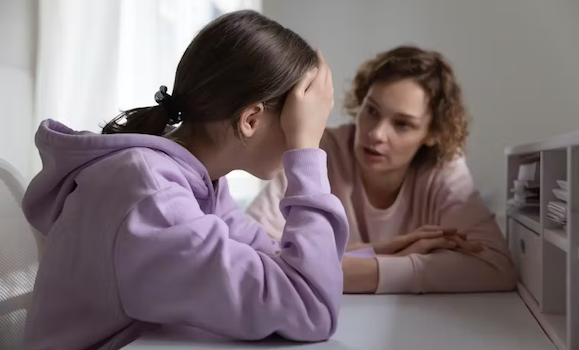, Professor, Department of Criminology,ä»;ä», Professor, Family Studies,ä», andä», PhD Candidate in Sociology,ä».ä»Sue Bookchin, Executive Director of Be the Peace Institute, co-authored this article.![]()
ä»
In May 2018, several men drugged, kidnapped and assaulted a woman named in a trailer outside Halifax. Low reported the incident to police and a specialized nurse completed a sexual assault exam. The police only collected her clothes as evidence 10 days after the assault. They never went to the crime scene and were not responsive when Low pressed for updates. She has been ever since.
highlights the challenges faced by survivors of gender-based violence when seeking justice. Survivors often feel in criminal proceedings. They feel by justice personnel. They can feel pressured in family court. To make matters worse, after turning to the legal system for help.
These issues are exacerbated for .
Even about these systemic issues.
April marks . Jurisdictions across Canada have implemented to address these problems. Governments are dedicating significant resources to implement recommendations from Nova Scotiaãs , the and the .
These initiatives acknowledge gender-based violence as an endemic human rights violation and a significant public health and safety concern, and they do address some systemic shortcomings.
However, our work in the field led us to wonder whether these measures would help survivors find justice. What does justice mean to survivors? And what changes would provide them with a better sense of justice? explored these questions.

Validation and agency are necessary components for justice seen as served.ä»(Shutterstock)
Support, validation and agency
We interviewed 36 women who endured gender-based violence, including sexual and domestic violence. They all sought justice through the criminal system or family court. We shared their stories in a workshop with other survivors to help us identify characteristics of stories that felt just and those that did not.
Through this work, it became clear that our research participants equated justice with support, validation and agency; seeking justice did not feel just or fair without them. Justice may be less about processes or procedural outcomes and more about how the system treats survivors in their journey.
Validation and agency are necessary components for justice to be seen as served. These values do more than meet needs or increase satisfaction; they fundamentally provide justice.
Support generally came from individuals who cared, even if they could not control outcomes. In some cases, one person who expressed genuine concern made all the difference. An encounter with even one person who offered kindness and compassion left a lasting impression on survivors during their most vulnerable moments. Support comes from a focus on their needs rather than the systemãs.
Survivors felt validated when someone in the system let them know that what had happened to them was wrong and not their fault. This mattered even if the individual could not change a process or an outcome.
Support and validation came from a variety of places, including victim services, community organizations, and at times, police.
The women we interviewed experienced more justice when they could retain some level of agency. They described how being stripped of that agency was a shocking realization of how little they mattered. Having agency was not about deciding what would happen to the person who perpetrated harm. Women felt they had agency when they could act independently and make some decisions about their own life.
Often, in our teaching and community-work, we hear people assume that survivors equate revenge and punishment with justice. While some survivors do want punishment, our research suggests that justice happens when women experience support, validation and can exercise agency. When these are absent, the system replicates the injustice of the abuse already experienced. The desire for punishment may, sometimes, reflect the lack of alternatives. Support and validation came from a variety of places, including victim services, community organizations, and at times, police.ä»(Shutterstock)
Support and validation came from a variety of places, including victim services, community organizations, and at times, police.ä»(Shutterstock)
A more human-centred justice system
What would the legal system look like if support, validation and agency were underpinning principles of justice? The 2019 report of the offers some insight. It stated that there must be:
ãA fundamental reorientation of systems centred on human beings ã designed and structured in ways that would be responsive to the relational nature of human experience and needs.ã
The nature and magnitude of this shift is enormous.
Our research supports the need for a shift to a more human-centred system. However, this will require time, political will and resources. Our research shows that even one person who supports or validates a victimãs feelings can shape their justice-seeking journey.
Being given some agency on some decisions, can change whether survivors feel they were treated fairly or not. Even within a flawed system, those who feel believed, supported and validated were more likely to feel they had gotten justice. Being able to make simple decisions like where and when to tell their story to system officials can go a long way.
As simple as it sounds, our research shows that women had positive experiences seeking justice when they experienced support, agency and validation. They felt believed and that their concerns were being taken seriously. Even if other individuals could not change outcomes or fix flawed procedures or policies, they could still have a deep impact.
With these experiences in mind, we suggest that those in the system need to take greater account of how their actions can affect victims of abuse. Individuals can make a meaningful difference with relative ease and simple actions that mean a lot to survivors. This will not be enough, but itãs a good place to start.
ä»
This article is republished from under a Creative Commons license. Read the .

